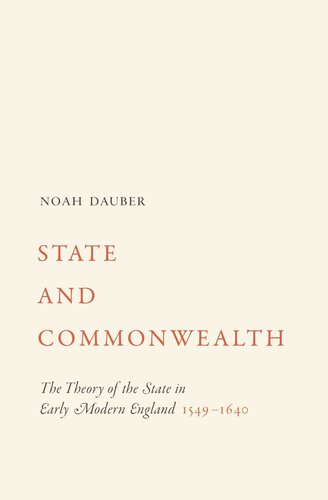

Most ebook files are in PDF format, so you can easily read them using various software such as Foxit Reader or directly on the Google Chrome browser.
Some ebook files are released by publishers in other formats such as .awz, .mobi, .epub, .fb2, etc. You may need to install specific software to read these formats on mobile/PC, such as Calibre.
Please read the tutorial at this link: https://ebookbell.com/faq
We offer FREE conversion to the popular formats you request; however, this may take some time. Therefore, right after payment, please email us, and we will try to provide the service as quickly as possible.
For some exceptional file formats or broken links (if any), please refrain from opening any disputes. Instead, email us first, and we will try to assist within a maximum of 6 hours.
EbookBell Team

0.0
0 reviewsIn the history of political thought, the emergence of the modern state in early modern England has usually been treated as the development of an increasingly centralizing and expansive national sovereignty. Recent work in political and social history, however, has shown that the state—at court, in the provinces, and in the parishes—depended on the authority of local magnates and the participation of what has been referred to as "the middling sort." This poses challenges to scholars seeking to describe how the state was understood by contemporaries of the period in light of the great classical and religious textual traditions of political thought.
State and Commonwealth presents a new theory of state and society by expanding on the usual treatment of "commonwealth" in pre–Civil War English history. Drawing on works of theology, moral philosophy, and political theory—including Martin Bucer's De Regno Christi, Thomas Smith's De Republica Anglorum, John Case's Sphaera Civitatis, Francis Bacon's essays, and Thomas Hobbes's early works—Noah Dauber argues that the commonwealth ideal was less traditional than often thought. He shows how it incorporated new ideas about self-interest and new models of social order and stratification, and how the associated ideal of distributive justice pertained as much to the honors and offices of the state as to material wealth.
Broad-ranging in scope, State and Commonwealth provides a more complete picture of the relationship between political and social theory in early modern England.